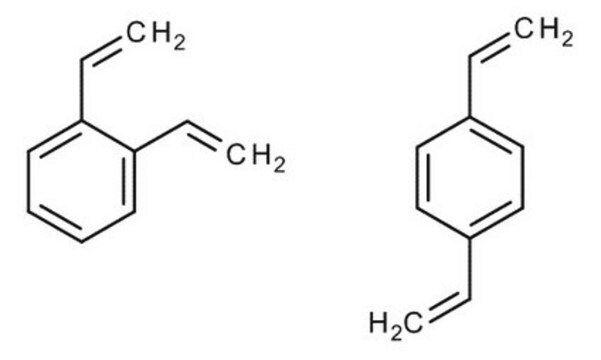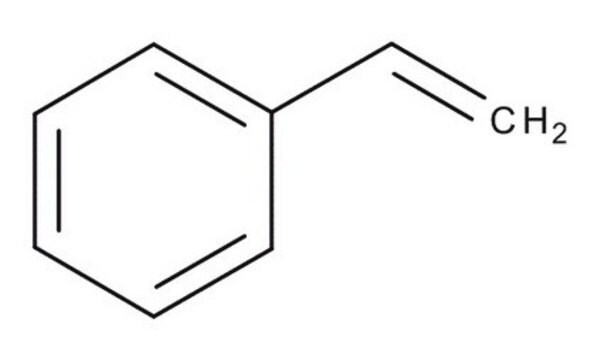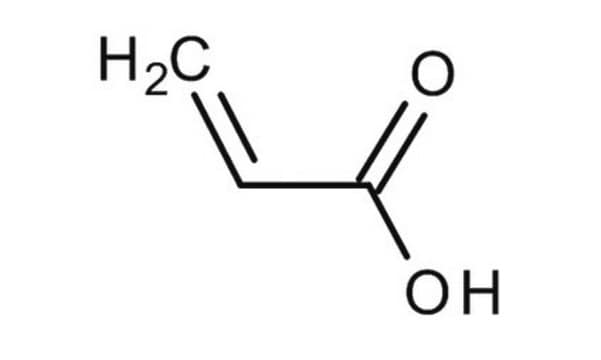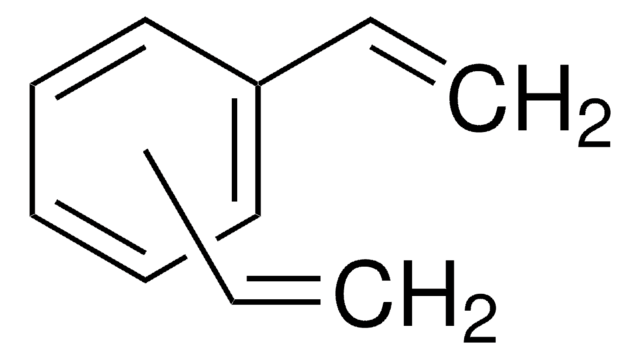8.08154
Thionyl chloride
for synthesis
Synonym(s):
Thionyl chloride, Sulfurous acid dichloride, Sulfurous oxychloride
About This Item
Recommended Products
vapor pressure
121 hPa ( 20 °C)
Quality Level
form
liquid
potency
324 mg/kg LD50, oral (Rat)
bp
76 °C/1013 hPa
mp
-104.5 °C
density
1.64 g/cm3 at 20 °C
storage temp.
2-30°C
InChI
1S/Cl2OS/c1-4(2)3
InChI key
FYSNRJHAOHDILO-UHFFFAOYSA-N
General description
Application
- 4-(sulfinylamino)-1,2,4-triazole by reacting with 4-amino-1,2,4-triazole.
- Isothiazolopyrimidines from aminouracils via cyclization reaction.
- 1,2,6-triazine S-oxides by reacting with diimines via condensation reactions in the presence of pyridine.
- 2-oxo-1,3,2-dioxathianes by condensation reaction with alkane-1,3-diols.
- Cyclic sulfites by reacting with nitroglycols.
- Microporous organic polymers by aldol self-condensation reaction of di and multiacetyl building blocks.
Analysis Note
Identity (IR): passes test
Signal Word
Danger
Hazard Statements
Precautionary Statements
Hazard Classifications
Acute Tox. 3 Inhalation - Acute Tox. 4 Oral - Eye Dam. 1 - Skin Corr. 1A - STOT SE 3
Target Organs
Respiratory system
Supplementary Hazards
Storage Class Code
6.1D - Non-combustible, acute toxic Cat.3 / toxic hazardous materials or hazardous materials causing chronic effects
WGK
WGK 1
Flash Point(F)
Not applicable
Flash Point(C)
Not applicable
Certificates of Analysis (COA)
Search for Certificates of Analysis (COA) by entering the products Lot/Batch Number. Lot and Batch Numbers can be found on a product’s label following the words ‘Lot’ or ‘Batch’.
Already Own This Product?
Find documentation for the products that you have recently purchased in the Document Library.
Customers Also Viewed
Our team of scientists has experience in all areas of research including Life Science, Material Science, Chemical Synthesis, Chromatography, Analytical and many others.
Contact Technical Service









